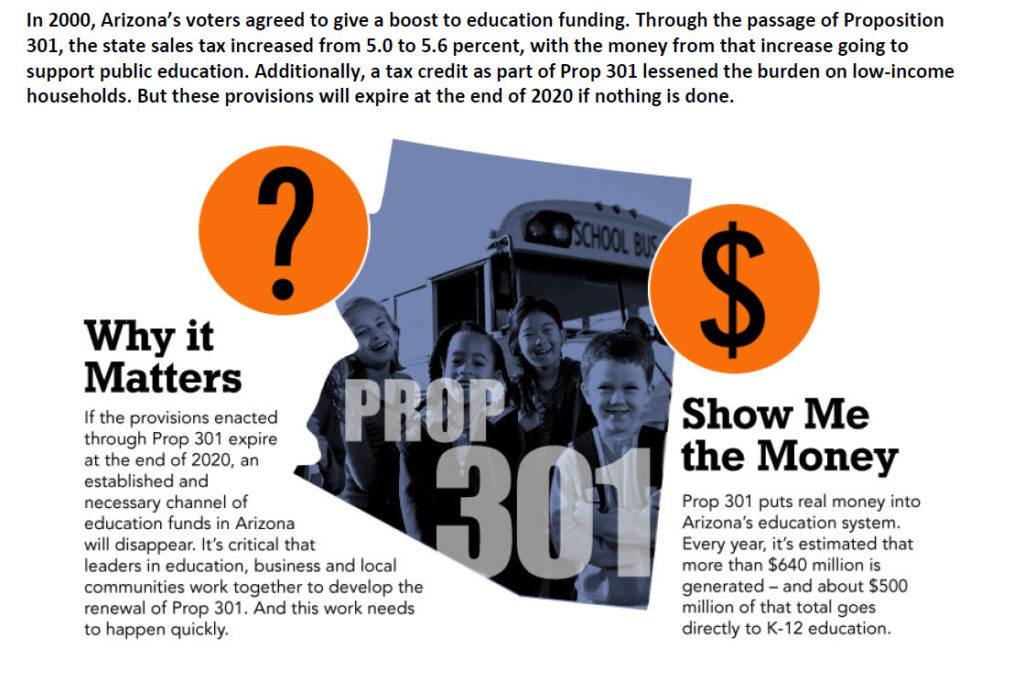Contact Silvia Allen
Senate Bill 1390, which would extend Prop 301. is scheduled to be heard by the Arizona Senate Education Committee this Thursday, March 22nd. Losing this funding which was approved by a significant majority of the Arizona voters in 2000 will have a significant impact on the quality of education in our state. See the attached infographic to learn more about proposition 301. Please contact Sylvia Allen our LD 6 Senator and chairman of the Senate Education committee and urge her to vote yes on Senate Bill 1390.

 The following is a list of only a few of the more important stories posted on the Blog in 2017. During the year, the Blog has posted over 200 stories about Yavapai Community College. Areas of similar general interest have been grouped together.
The following is a list of only a few of the more important stories posted on the Blog in 2017. During the year, the Blog has posted over 200 stories about Yavapai Community College. Areas of similar general interest have been grouped together.
